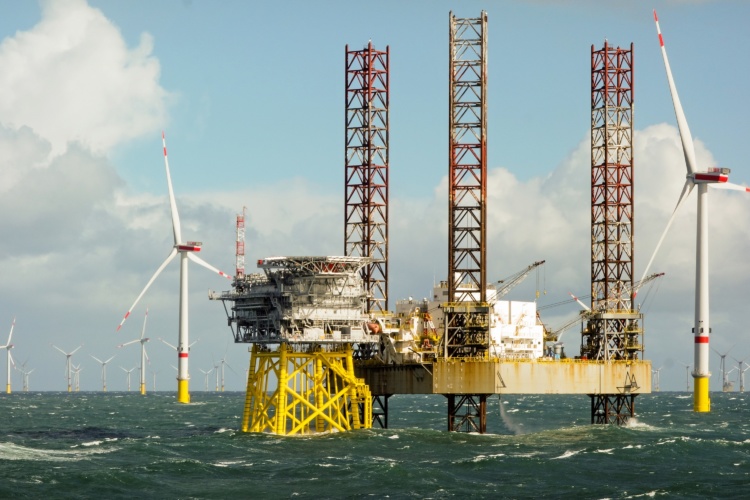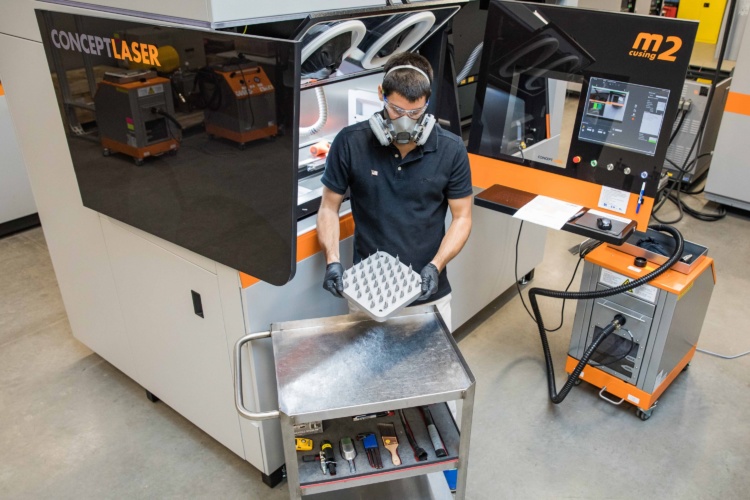 A recent survey from Protolabs suggests that the oilfield services sector has already begun adapting to a new reality as we move away from fossil fuels. Bjoern Klaas, VP and Managing Director for the company’s EMEA business, takes a closer look at the results.
A recent survey from Protolabs suggests that the oilfield services sector has already begun adapting to a new reality as we move away from fossil fuels. Bjoern Klaas, VP and Managing Director for the company’s EMEA business, takes a closer look at the results.
As the world transitions towards net zero carbon emissions, oilfield services companies face the challenge of radically restructuring if they are to remain in business in the long term. And they need to do it sooner rather than later.
Comment: Powering the energy transition through the circular economy
To put this into context a new era is dawning that will see intense competition, lower investment in new exploration and production of oil and gas, the need for new technology and perhaps most significant of all increasing public, investor and government pressure to move away from fossil fuels.

In light of these changes, companies within the sector generally have two options: to make as much money as they can while they can and focus on efficiency, technology and maybe some new business models; or alternatively use the money they are generating to finance a transition and have clear targets on how they intend to do this.
To find some answers on what the industry is doing our Decision Time survey asked 181 senior executives from across Europe to take stock of where they are in this transformation and ask them what’s next and in what sort of time frame.
It showed that 74 per cent of the companies that we questioned are already redefining what their core business is as a result of the energy transition.
A sustainable future?
Most are embracing sustainability as an opportunity with 77 per cent saying sustainability is a way to differentiate and grow their business, and with 80 per cent saying that experience in sustainability gives European businesses an edge in global markets.
Most also understood the urgency of change and the need to innovate in order to survive. As one CEO states “All this decision making is starting now, and everything will happen in the next 10 years.”
The sector’s appetite to secure a long-term future means companies are branching out into other industries and extending their capabilities. With energy transition revolutionising the sector, combined with a much lower profit environment, it is imperative that companies continue to both innovate and also embrace renewable markets.
Fortunately, innovation and technology are hallmarks of the oilfield services sector, which is encouraging given the huge pressures it is under. And the results of our survey show that they fully understand this urgency and are doing far more than just talking about it; they are actively exploring alternative options.
Within the next 12 months, 87 per cent of UK respondents to the survey plan to implement robotics and automation and 83 per cent plan to engage in manufacturing as a service (MaaS) for example by using 3D printing and on-demand manufacturing to streamline component production.

New markets
As for embracing new markets, our report shows that respondents already have, with 56 per cent of their existing projects in new energy or non-energy business and they expect to further shift this proportion to 64 per cent over the course of the next five years. It seems that most are willing to meet the challenges faced by their sector.
While the energy transition is a threat to their traditional business, it is also an opportunity to those who make the right decisions. Delving further into this, our survey reveals exactly where they think these opportunities lie. Over the next two to three years 42 per cent of respondents across Europe see renewable energy technology as the greatest opportunity for their business with 22 per cent citing opportunities in carbon dioxide management over the same timeframe.
Others see future business in what will become a declining market. In the face of less investment in new exploration and production, 31 per cent can see opportunities for innovation in oil recovery to be a key growth area over the next 12 months. While this may be seen as a shorter-term opportunity it is acknowledged that the world will have a dependence on fossil fuels for some years to come as we make the transition to a lower carbon society.
Overall though, we are all aware of the need to move away from fossil fuels and towards renewable energy. Our research shows that the transition is not only understood by the well publicised oil and gas majors but also by the oilfield services sector. Indeed, the supply chain is already changing and actively seeking new opportunities.
This is just as well because although this sector has faced a lot of change over the decades, there has been nothing as challenging as what it faces over the coming years. The scale of change and the short time frame will see both winners and sadly some who go out of business. Never has the term “adapt or die” been more pertinent.










Water Sector Talent Exodus Could Cripple The Sector
Maybe if things are essential for the running of a country and we want to pay a fair price we should be running these utilities on a not for profit...